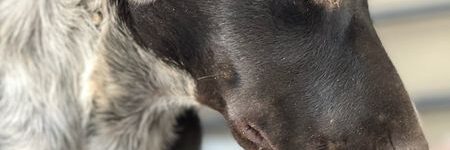A case of a deadly tick-borne disease known as Ehrlichiosis has been found in far north Queensland with authorities worried that it may continue to spread.
The disease was first identified in the Northern Territory in 2020 and has subsequently spread to Western Australia as well as South Australia with the first case now recognised in Queensland. Ehrlichiosis is a bacterial disease that spreads through brown ticks and comes with symptoms that include weight loss, bleeding, enlarged lymph nodes as well as a fever and cornea oedema which gives the dog cloudy eyes.
According to Mount Isa Veterinarian Gillian Tenni it can take several weeks for an infected dog to show symptoms and she told the ABC that this disease is a cause for concern for both vets and pet owners.
“We suspect this is a locally acquired case as the dog has not travelled from the NT,” she said.
“That’s very concerning,”
“It could mean that other dogs may be infected, and the bacteria is here to stay [and] that’s what we’re worried about.”

According to the NT news, thousands of dogs were killed in 2020 when the disease was rampant in the Northern Territory. The Animal Welfare League of Queensland told RACQ that the best way of preventing the disease is to use tick prevention on dogs.
“Spot-on treatments, tables and collars are available, and it is best to consult your vet about which is most suitable for your pet,” they said.
“While these products act as a preventative, there is no guarantee they will protect your pet 100 per cent of the time and the best way to protect your pet is to check them daily.”
The Queensland government echoed that advice by suggesting that people make sure their “dog is on an effective tick prevention and control program including external tick control that kills brown dog ticks on contact”. Government animal authorities suggest that “human-assisted” moving of dogs is one of the more likely reasons why the disease is spreading as there was an increase of dog transportation during the pandemic amid pet shortages.
Humans cannot catch the disease directly from the dog but can be infected if bitten by a tick carrying Ehrlichiosis. People are encouraged to contact Biosecurity Queensland if they believe the disease is present within a dog in Queensland.





